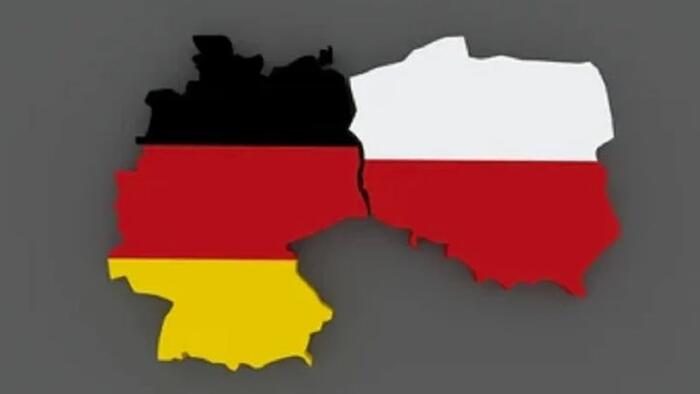Authored by Andrew Korybko via Substack,
NATO logistics chief Lieutenant-General Alexander Sollfrank suggested the creation of a so-called “military Schengen” for optimizing the movement of such equipment across the EU. At present, bureaucratic and logistical obstacles impede the free flow of arms throughout the bloc, which he believes could hamstring the West’s ability to respond to any unexpected conflict along its periphery. It’s not just this proposal’s substance that’s significant, however, but also its timing.
“NATO’s Proxy War On Russia Through Ukraine Appears To Be Winding Down” for the reasons explained in the preceding hyperlinked analysis. Accordingly, Bloomberg’s report about the EU’s draft security guarantees to Ukraine conspicuously omits any mention of mutual defense obligations of the kind that Kiev has sought for years and which greatly contributed to the latest phase of this nearly decade-long conflict. Sollfrank’s suggestion therefore seems to contradict these emerging de-escalation trends.
Upon reflection, however, it’s actually revealed to be a thinly disguised Germany power play over Poland. The EU’s informal leader ramped up its regional competition with Poland in mid-August through its promised military patronage of Ukraine, which readers can learn more about in that hyperlinked analysis. In brief, Poland aspired to become the leader of Central & Eastern Europe (CEE) throughout the course of the NATO-Russian proxy war, but Germany rose to the occasion to challenge its ambitions.
The liberal-globalist opposition coalition’s victory in last month’s Polish elections, which its Foreign Minister earlier accused Germany of meddling in, will likely result in former Prime Minister and European Council President Donald Tusk’s return to the premiership. In that event, this German-aligned politician could voluntarily subordinate his country to Berlin, thus resulting in Poland ceding its envisaged regional sphere of influence to that country and becoming its largest-ever vassal indefinitely.
Tusk’s plans to improve ties with the de facto German-controlled EU are regarded by conservative-nationalists as a means to that end, particularly due to that body’s efforts to further erode Polish sovereignty. Although he claims to oppose changes to the EU Treaty, some doubt his sincerity and suspect that he slyly wants to prevent large-scale protests over this issue. If these two scenarios come to pass, then Poland’s sovereignty would be further reduced, including in the defense sphere.
Prior to last month’s elections, Germany and Poland were competing to build the EU’s largest military, but the aforesaid sequence of events could result in Warsaw throwing in the towel. Even though its next potential Defense Minister said that his country won’t cancel any of its military contracts, conservative-nationalists also suspect that he’s either being insincere or could be coerced by Berlin/Brussels into doing so. All things considered, these concerns are credible and should be taken seriously.
Germany’s national interests as its incumbent policymakers conceive them to be rest in becoming the EU’s hegemon, which necessitates neutralizing Poland’s ambitions to lead the CEE space, ergo its alleged support of Tusk and speculative efforts to erode Polish sovereignty via the EU. These moves importantly preceded NATO’s proposed “military Schengen”, and that’s not by coincidence either. Rather, they’re meant to facilitate Germany’s unprecedented post-WWII power play over Poland.
If Tusk improves ties with the EU like he promised, complies with any EU Treaty changes despite unconvincingly claiming to oppose them, and the “military Schengen” is imposed upon his country, then German forces could return to Poland en masse on the pretext of defending the EU from Russia. This doesn’t contradict the de-escalation trends pertaining to the NATO-Russian proxy war, but complements them since it could be spun as compensating for the lack of Article 5-like guarantees to Ukraine.
On the one hand, the EU would wisely avoid laying any tripwires that Kiev could maliciously exploit to provoke a larger conflict with Russia upon the inevitable freezing of the present one (whenever that happens), while at the same time reassuring the public that they can still adequately respond if need be. The “military Schengen” would serve the purpose of enabling the bloc’s de facto German leader to swiftly dispatch its forces, which are planned to be the EU’s largest, to the eastern frontier in that event.
It goes without saying that they’d have to transit through Poland and could easily end up deployed there indefinitely, whether as a so-called “deterrent to Russian aggression” or as part of a preplanned response to an artificially manufactured (i.e. false flag) border incident. After having voluntarily subordinated itself to Berlin under Tusk as is soon expected for the reasons that were explained, the restoration of German hegemony over Poland would therefore be completed without firing a shot.
In that scenario, which Polish conservative-nationalists are powerless to prevent and can only be offset by unlikely variables beyond their control, Germany would essentially be tasked by the US with “containing” Russia in Europe as part of Washington’s “Lead From Behind” stratagem. Once that country’s continental hegemony is fully secured through the means that were described in this analysis, America can then more confidently “Pivot (back) to Asia” to focus on containing China.
Those two superpowers are currently in the midst of an incipient thaw as proven by the positive outcome of their leaders’ latest face-to-face meeting earlier this month on the sidelines of the APEC Summit in San Francisco, but it can’t be taken for granted that this trend will continue. It therefore makes sense for the US to outsource its anti-Russian containment operations in Europe to Germany in order to free up the resources required for more muscularly containing China in Asia if this thaw fails.
As has traditionally been the case throughout history, Polish sovereignty is once again in the process of being sacrificed as part of the Great Powers’ games, but this time its borders will remain intact even though the country is poised to functionally become a German vassal in the coming future. There are indeed some variables beyond Poland’s control that could offset this scenario, but they’re very unlikely, so it’s probably a fait accompli by this point that Poland will play second fiddle to Germany indefinitely.
Loading…











